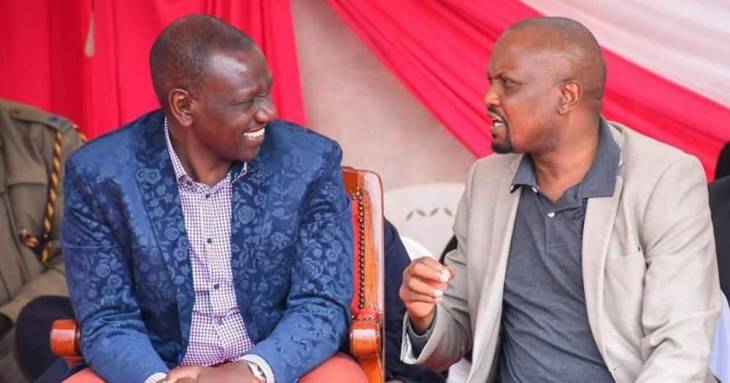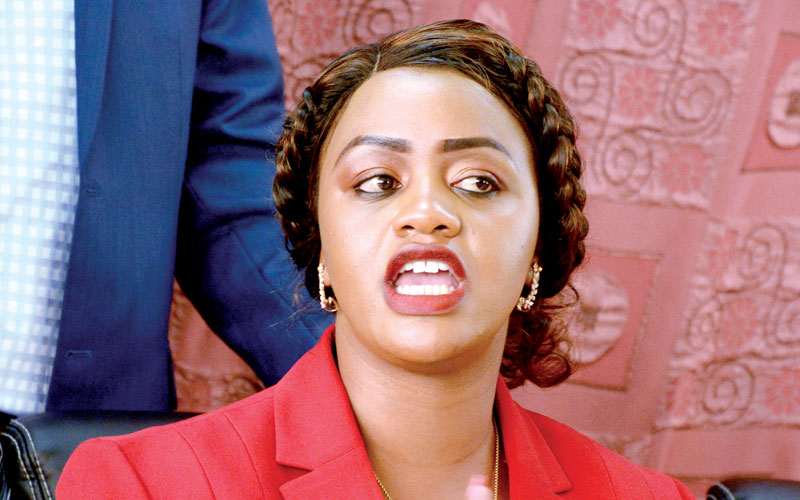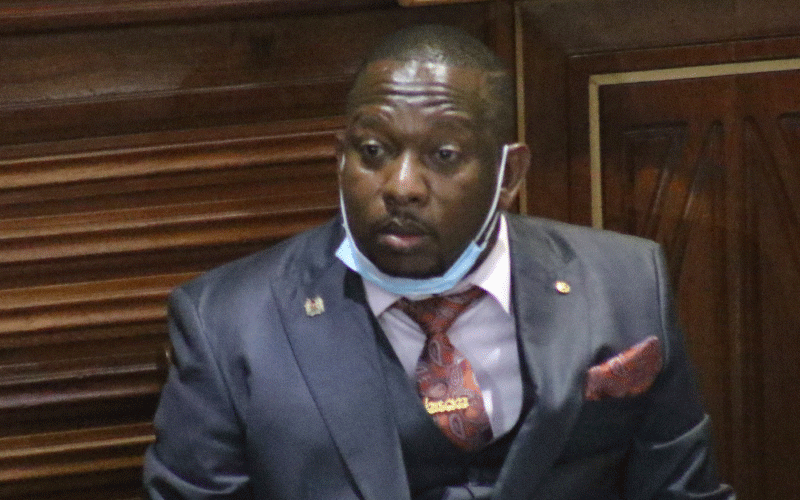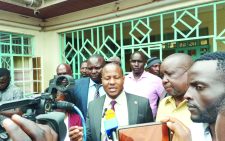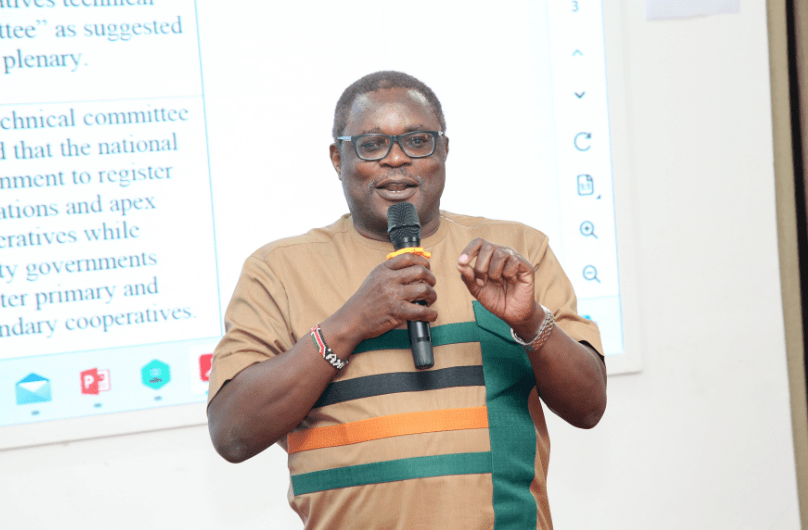How Handshake reversed roles for Ruto, Raila
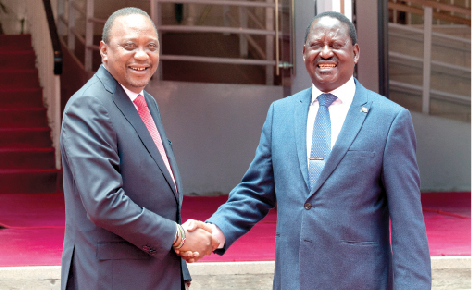
On the sunny afternoon of March 9, 2018, which is exactly four years today, an unprecedented event took place on the steps of the President’s Harambee House office that drastically changed the country’s political landscape.
On that day, President Uhuru Kenyatta, freshly re-elected for his second and last term, and ODM leader Raila Odinga, then sworn fierce political enemies, walked out of the building to announce the news of their reconciliation. The event came to be known as the Handshake.
And with that began the journey that has been credited with creating peace and tranquility in the country on the one hand, and blamed for tinkering with then existing bromance between Uhuru and his deputy William Ruto, on the other.
The Handshake, which according to the two partners was necessitated by violence triggered by the refusal by Raila and his supporters to accept the outcome of the repeat presidential elections over rigging claims, and its subsequent products including the Building Bridges Initiative (BBI), is now turning out to be a determinant factor in the August 9 General Election.
The Handshake has since seen Raila and Ruto change roles, with the former, once a sworn government critic, becoming its defender while the latter, despite being the President’s principal assistant, turning into an opposition champion.
Pundits and politicians from both sides of the political divide are unanimous that the Handshake, which celebrates its fourth anniversary today, has brought common sense on the political scene, and will shape Uhuru’s succession politics.
Building bridges
It has soured fortunes of some politicians and left several casualties in its wake while at the same time propelling others to greater heights of their political careers.
While Uhuru, according to observers, gained by having an enabling working environment that also saved the country from an imminent economic turmoil, and earned him international recognition for averting a potentially deadly post-poll situation; Raila has been cited as a key beneficiary by successfully using it to further his presidential ambitions.
Immediately after the Handshake, Uhuru and Raila, the foes-turned-friends, embarked on a journey of “building bridges to bind Kenya”.
Political observers argue that the building bridges mantra has led to the birth of Azimio La Umoja coalition, that has attracted the backing of more than 15 political parties backing Raila’s candidature for State House.
In his previous attempts to win the presidency, Raila has always accused the State of being a stumbling block.
But today, the former opposition chief appears to be sitting pretty, enjoying State machinery and support.
“The support he receives from the incumbent President and State machinery will give him mileage. It makes a major difference from his previous attempts,” says political analyst, Prof Peter Kagwanja.
On the other hand, Ruto, who has never hidden his disgust for the Handshake, has turned out to be the main casualty after his defiance not only cost him his friendship with his boss but also made him lose his space as Uhuru’s principal assistant before eventually being kicked out of Jubilee Party which he helped found.
The DP is also said to be slowly losing his grip on Mt Kenya region, Uhuru’s stronghold that had initially appeared locked in his favour but has apparently been opened up to other players.
Political violence
However, some pundits and his backers argue that Ruto who, immediately after the Handshake assembled a cabal of politicians coalescing around Tanga Tanga faction to fight his boss while advancing his presidential ambitions, has successfully played the victim card to attract public sympathy.
“Before the Handshake, only four years stood between Ruto and the presidency because of the tyranny of numbers that he and Uhuru had amassed. But he has now been left naked and a bitter man.
In all these, Raila remains the ultimate winner because he managed to split Jubilee to birth the Jubilee reloaded and United Democratic Alliance and won the backing of Uhuru,” Prof Kagwanja observes.
From 2007 when he competed against Mwai Kibaki, Raila was always seen in the Mt Kenya region as a political enemy and from 2013, local leaders maintained that the vote-rich region would automatically back Ruto.
But today, thanks to the Handshake, Raila is warmly welcomed in the region that is slowly becoming receptive to his ideas.
During the Sagana III meeting last month, Uhuru made a strong pitch for Raila’s presidency with a strong warning for the region to shun his deputy who he painted as unsuitable for leadership.
According to Kagwanja, Kenyans have become big gainers in the entire process because had the Handshake not happened, they would have lost the country.
Kagwanja says the economy was also facing imminent collapse due to the political violence.
“Uhuru had the option of putting him (Raila) in jail and even possibly, hang him but the situation would have gone bad. Some people were ready to go the guerrilla route.
But Kenya won because she was spared the weekly demonstrations, the violence that would have cost the country dearly,” Kagwanja told People Daily.
Uhuru has maintained that he reconciled with Raila out of concern that the protests would make the country ungovernable, and plunge it to a situation similar to 2007 when more than 1,000 people were killed, more than 350,000 displaced and the economy shattered as a result of post-election violence.
Murang’a Senator Irungu Kang’ata, who was one of the casualties of the Uhuru-Ruto fallout that saw him lose the Senate Majority Whip post, says the Handshake brought peace and made “those bent on causing havoc and blackmailing elected government to lay down stones” but its negative side was negation of opposition politics that made ODM abandon its oversight role.
The Murang’a governor candidate agrees that the process hurt the DP but was also a blessing in disguise.
“It (Handshake) was used as a decoy to practically remove the DP from government. It made the government insular to the needs of the people.
The positive angle of the Handshake is that it will make it easier for us to defeat Tinga,” the senator said.
House positions
In a tell-it-all media interview last year, Ruto acknowledged that Handshake politics had subjected him to immense humiliation and embarrassment in his own Jubilee government and that his space at Uhuru’s administration had gone to other people.
“That is an unfortunate situation. Given an opportunity, I will not allow my deputy to be humiliated the way former DPs have been humiliated and the way I have been humiliated.
I will not allow… the space that I occupied before was taken up by other people who are advising the President on how to move forward,” said Ruto.
Jubilee Party deputy secretary general Joshua Kutuny feels the Handshake gave a chance to a stable government that has achieved a lot. According to him, Ruto has suffered from his miscalculations that have made him the main casualty “after he and his surrogates attempted to stand in the way of the initiative”.
On the other hand, Raila won Uhuru’s support and got a chance to ride on it to advance his presidential bid, and made his members to bag influential House leadership positions.
The DP not only lost Uhuru’s trust and support, but his allies such as Senator Kipchumba Murkomen (Elgeyo Marakwet), Kithure Kindiki (Tharaka Nithi), Kang’ata, and Garissa Town MP Aden Duale also bid bye to House leadership posts.
“The main beneficiary is Uhuru because he has managed to achieve so much development that will shape his legacy.
Raila is also a major gainer because the Handshake has propelled his political visibility because it has emerged to be his political ladder to help him scale to the presidency,” Kutuny says.
According to Kagwanja, Ruto should blame himself for bungling the whole Handshake issue: “The DP suffered because he mismanaged the Handshake by fighting it and in the process lost the support of Uhuru and his followers which he really needed.
He also lost credibility after his soft underbelly was exposed. His allies, like Duale, Kindiki, Murkomen lost visibility after losing their House leadership positions,” Prof Kagwanja adds.
Cabinet Secretaries, Principal Secretaries, governors, at least 25 holders of leadership positions in both Parliament and county assemblies who appeared to stand on the way of the Handshake or involved in corruption were replaced with opposition figures in a move that saw them lose influence and hefty perks.
Among those whose downfall can be pegged on the handshake include former Treasury CS Henry Rotich who was charged with theft of dam construction money, Mwangi Kiunjuri who was sacked from government over his association with the DP while former governors Mike Sonko and Kiambu’s Ferdinand Waititu were charged and impeached by Jubilee and ODM senators allied to the Handshake.
Victim card
History professor Macharia Munene, while agreeing with Kagwanja and Kutuny that Ruto suffered a blow from how he managed the Handshake, notes that the DP, too, is a beneficiary of the Handshake.
“By appearing to be a victim of the Handshake Ruto has won sympathy which will assist him in the next polls. He has played that card well despite the Handshake solidifying Uhuru and Raila’s closeness.
Raila has benefited immensely because he has won strong support from Uhuru and the State machinery,” Prof Munene says.
Keiyo South MP Daniel Rono, an ally of the DP, says the Handshake has not made things rosy for Ruto after his boss negated on the promise that he would back him in the August poll.
Rono says the agreement between Uhuru and Raila was a blessing in disguise because the Tanga Tanga camp is able to campaign without being blamed for government failures.
“As much as Ruto has suffered after Uhuru teamed up with Raila and betrayed their political agreement, he has gained a lot from the animosity because everyone could see how he is being treated unfairly. It’s also good for us because the DP is not carrying the burdens of Jubilee failures which would have been the heavier if they were still together,” Rono says.
